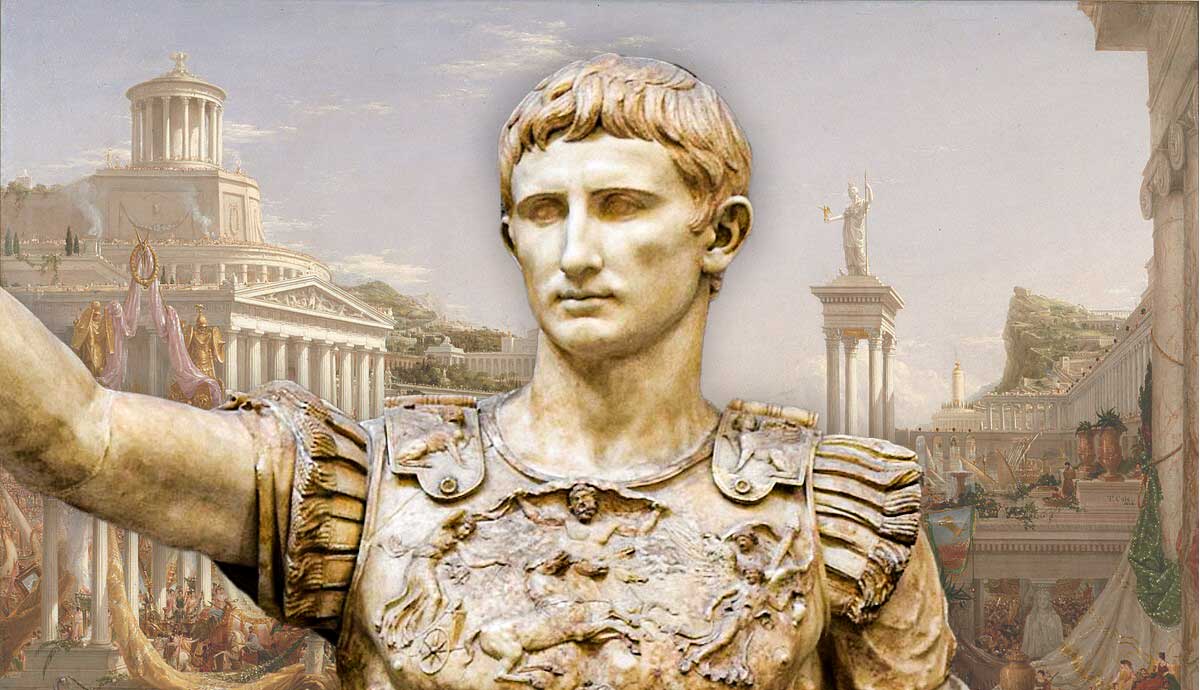
The Roman Empire was vast and may have contained more than 100 million people at its height in the 1st and 2nd centuries CE. To monitor this expansive territory, enforce policy, exact taxes, and spy on prominent personages, the emperors developed what has been called a “Roman Secret Service,” initially out of specific units that were attached to the military. Although the frumentarii originated as distributors of grain and ancient postal workers, throughout the empire, they were increasingly used as secret agents to carry out the emperor’s bidding.
The Origins of the Secret Service and the Frumentarii

The frumentarii as a distinct unit, seemed to derive in part from earlier Republican military intelligence groups, especially the scouts (exploratores) and spies (specuatores) attached to different Roman legions. They also developed as part of the postal service set up by the first emperor, Augustus, as their initial role was oriented around communications and grain distribution (frumentum).
Since it was the role of the emperor to be the ultimate provider to the Empire, including the soldiers who defended it, Augustus was compelled to establish a unit of individuals who he could rely on to distribute grain across the provinces.

Evidence shows that they were recruited locally, from the different provinces, and taken from all classes of individuals. Each legion would send frumentarii to Rome, which would then be distributed across the Empire at key locations, such as provincial capitals.
Thus, they were perfectly situated to inform the emperor or his governors of any key events throughout the Empire. While they always retained their responsibility as grain distributors, it seems that the emperors increasingly began to rely on them as military intelligence agents.
Reforms Under Domitian

The emperor who was pivotal in establishing the frumentarii as gatherers of intelligence and imperial agents was Domitian. This emperor, the last of the Flavian Dynasty, has traditionally gone down in history as a cruel and malicious tyrant who sought to monopolize power and was paranoid about betrayal.
Whilst this image was colored by ancient biases, the fact that frumentarii begin to appear in the record under Domitian does lend some credibility to this impression. However, he has also been seen as an efficient and insightful administrator by more modern commentators, so either association could help explain the development of the frumentarii under Domitian.
Nonetheless, he established headquarters for the unit in Rome, at the Castra Peregrina (fort of foreigners) on top of the Caelian Hill. The camp could fit around 400 men, about 12 or 13 from each of the Empire’s legions. It is believed that roughly the same number would have been dotted around the empire and in the provincial capitals.
Whilst they were still nominally registered with their respective legions, especially in Rome, they now made up a more distinct unit, answerable to the emperor and his central administration. They were also placed under the direction of a senior legionary centurion, now named the princeps peregrinorum (Chief of the Foreigners).
Consolidation as Secret Service Agents

Although we can detect these centralizing changes under Domitian, it is not until Hadrian that we have the first explicit written evidence of using frumentarii for intelligence activities. Like Domitian, Hadrian suffered from senatorial censure for his heavy-handed approach to ruling the Empire, and for executing several senators, just as he has also been established in historiography as a master-administrator.
The Historia Augusta tells us that Hadrian utilized the frumentarii to spy on his friends in the imperial court, ever suspicious of those around him. Like Domitian, Hadrian was another emperor who aimed to centralize power more tightly around the position of the emperor, ensuring a smooth running of affairs managed by him and his staff.
Again, it makes complete sense that such a power-hungry figure would want to utilize and adapt a unit of soldiers to carry out clandestine activities to assure the stable continuation of centralized power. Through his frumentarii, Hadrian was able to keep informed of his friends’ activities and behavior, reportedly on one occasion chiding one of them for spending too much time at the baths.
These agents could, of course, be used for more nefarious purposes and soon were. From Commodus onward, we have written evidence of their use as political assassins, spies, and enforcers. If, as was the case during the reign of Commodus, one of the emperor’s confidants or favorites lost the emperor’s favor, they could be hunted down and assassinated by a frumentarius.

More importantly, they could also be used by the emperors to assassinate rival claimants to power. Septimius Severus tried to have his opponent Albinus murdered by frumentarii. For such exploits, the imperial agents could, on occasion, be rewarded with senatorial office or the praetorian prefecture.
Aside from this, they were also used to spy over the general populace in Rome or the provinces, often sharing close links with the city police in the capital. As Christianity continued to spread throughout the Empire, they also became tools of religious persecution and torture. Notably, it was a frumentarius who watched over Saint Paul when he was awaiting his trial in Rome.
Yet most of all, except for still retaining their role as grain distributors, they seem to have become infamous as tax collectors and enforcers across the Empire.
Growing Infamy and Dissolution

As just noted, the frumentarii became particularly infamous for their activities in the provinces, away from the restraining view of the emperor and his court. In particular, it was their role as tax collectors that seemed to have irked ancient citizens more than anything. Many complaints about their activities were sent to the emperor and his secretariat.
From their complaints, we get the impression that the frumentarii evolved, in some places, into a disorderly and rapacious mob of thieves who used their position to extract wealth from the places they were sent. Under the Severans, peasants throughout the province of Asia Minor accused them of arbitrary arrests and exactions.
It became so common that honorary funerary epigraphs sometimes celebrated the fact that frumentarii agents did not abuse their position. All of this got worse as the Empire experienced recurrent problems, especially in the frontier provinces. Money was badly needed to fund wars and maintain some stability, and the frumentarii were chosen to ensure taxes were properly paid.
This all meant that by the end of the 3rd century CE, they were seen as a plague across the Empire, hated by all. As a result, the emperor Diocletian, unsurprisingly, another great administrator of the Empire who split its administration into four, decided to disband the unit after he became increasingly frustrated by the endless complaints concerning them.
A Greater Evil? The Agentes in Rebus

Although Diocletian dissolved the frumentarii, he was not willing to deprive himself of such a useful resource that could carry out intelligence activities. Therefore, whilst the populace may have been temporarily appeased by the removal of the frumentarii, Diocletian soon established the Agentes in Rebus, or “general agents,” who would prove to be far more notorious than the frumentarii had ever been.
Importantly, these general agents were no longer attached to the military and instead were recruited within civilian infrastructure and administered more directly by the imperial court. Specifically, they were put under the oversight of the new Magister Officiorum (“Master of Offices”), who was appointed by the emperor. This role, in effect, became the “master of information” across the Empire.
Moreover, the general agents were much more numerous than the frumentarii, with 1,200 men in total. They were initially distributed to the provinces and attached to each region’s postal infrastructure. In 357 CE, a law was passed that mandated sending two agents to each province every year, although the limit was removed in 412 CE.
Their primary duty was conveying information, unlike the frumentarii, who at least nominally retained their use as grain distributors. The general agents, however, as their name suggests, were also used for various activities, including assassination, spying, enforcing, and, of course, tax collection.
Like the frumentarii, they soon became infamous for their corruption and greed, earning them the modern reputation of being “corrupt minions of a police state.” Ironically, they also became the minions of a Christian state, persecuting and murdering heretics throughout the Empire who would not conform to the new imperial religion.
Unlike the frumentarii, they were not really disbanded and remained in operation, in some form or another, even after the Empire in the West had fallen. This fact undoubtedly indicates how successive rulers saw such secret and centralized agents as an indispensable resource to properly manage their vast territory.
Indeed, as with so many familiar aspects of the Roman Empire, their long yet ambiguous and changing existence shows many parallels with more modern “secret service” entities, like the KGB, FBI, and MI5.










